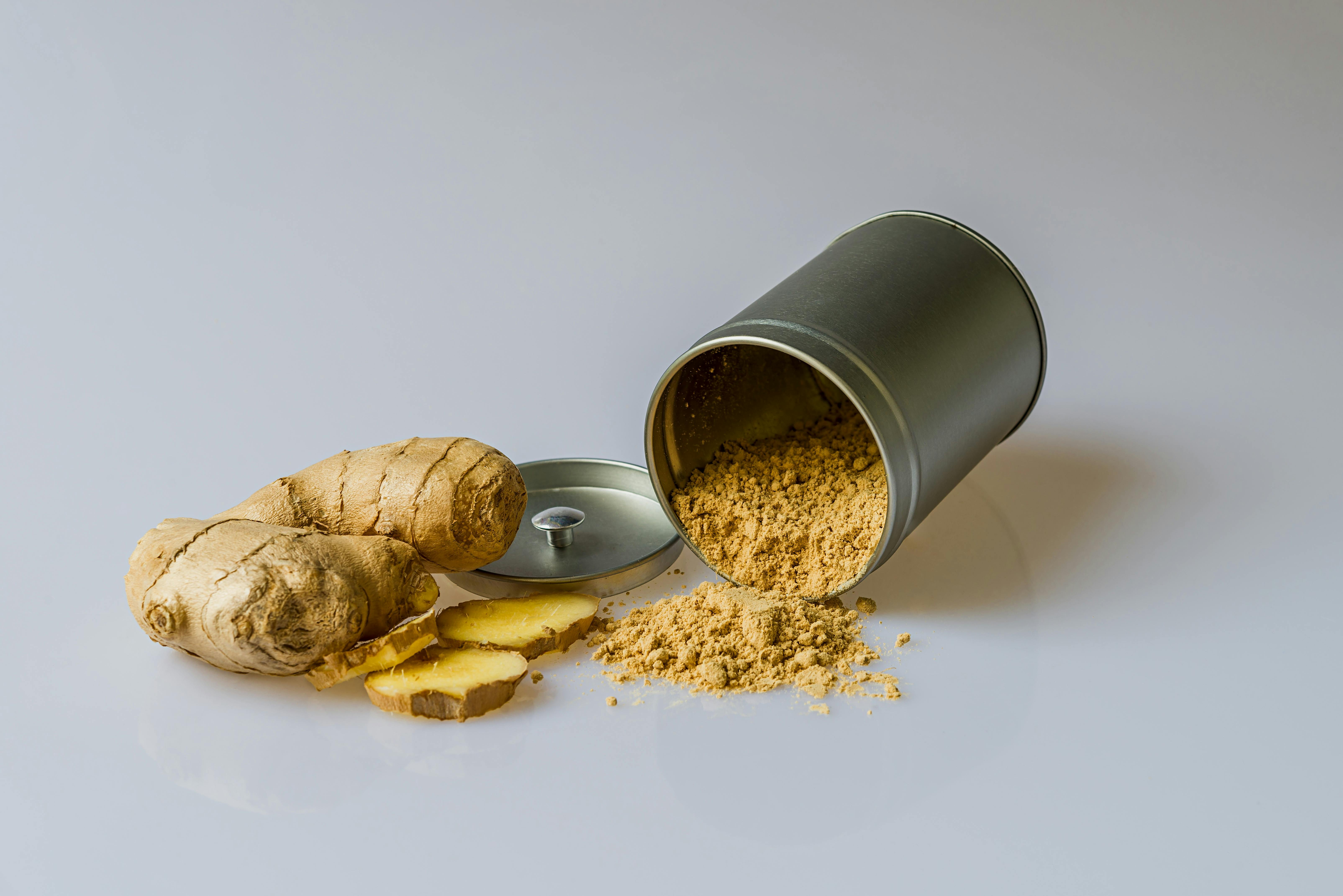Unveiling the Top 5 Ways Ginger Eases Inflammation Naturally
Ginger, a staple in traditional medicine for centuries, is renowned for its remarkable anti-inflammatory properties. This humble root, often used in culinary dishes for its distinctive flavor, holds a treasure trove of health benefits that modern science is only beginning to fully understand. Its efficacy in alleviating inflammation is particularly noteworthy, offering a natural alternative to synthetic medications. Inflammation, a common underlying factor in numerous chronic diseases, can be debilitating if not managed effectively. This article unveils the top five ways ginger naturally eases inflammation, providing insights into how this potent spice can enhance your health and well-being.
Gingerol: The Potent Anti-Inflammatory Compound

At the heart of ginger's anti-inflammatory prowess lies gingerol, a bioactive compound with powerful medicinal properties. Gingerol is primarily responsible for the distinctive aroma and flavor of ginger, but more importantly, it plays a crucial role in reducing inflammation at the cellular level. Research has shown that gingerol inhibits the production of pro-inflammatory cytokines and enzymes, which are key players in the body's inflammatory response. By blocking these pathways, gingerol effectively reduces swelling and pain, making ginger a valuable ally for individuals suffering from conditions such as arthritis and other inflammatory disorders.
Reducing Oxidative Stress

Ginger's ability to combat oxidative stress is another significant factor in its anti-inflammatory effects. Oxidative stress occurs when there is an imbalance between free radicals and antioxidants in the body, leading to cell damage and chronic inflammation. Ginger is rich in antioxidants, which neutralize free radicals and protect cells from damage. Studies suggest that regular consumption of ginger can enhance the body's overall antioxidant capacity, thereby reducing oxidative stress and its associated inflammatory responses. This makes ginger not only a powerful tool for managing inflammation but also an effective preventative measure against various oxidative stress-related diseases.
Modulating Immune Function

The immune system plays a pivotal role in inflammation, often acting as both a cause and a consequence of inflammatory processes. Ginger has been found to modulate immune function, striking a balance between necessary immune activity and excessive inflammatory responses. By influencing the activity of certain immune cells, such as T-cells and macrophages, ginger helps regulate the immune system's inflammatory response. This modulation is particularly beneficial for individuals with autoimmune diseases, where the immune system mistakenly attacks healthy tissue, leading to chronic inflammation. Ginger's ability to fine-tune immune activity underscores its potential as a natural therapeutic agent in managing inflammation-related conditions.
Enhancing Gut Health

A healthy gut is essential for managing systemic inflammation, and ginger plays a significant role in promoting digestive health. The gut is not only responsible for digestion but also acts as a major hub for immune activity. Ginger aids in maintaining the integrity of the gut lining, preventing the entry of pathogens and reducing inflammation. Moreover, it supports the growth of beneficial gut bacteria, which are crucial for a balanced immune response. By improving gut health, ginger indirectly reduces inflammation throughout the body, highlighting the interconnectedness of digestive health and systemic inflammatory processes.
Pain Relief and Joint Health

One of the most tangible benefits of ginger's anti-inflammatory properties is its ability to alleviate pain, particularly in joints and muscles. For individuals suffering from arthritis or chronic joint pain, ginger offers a natural alternative to non-steroidal anti-inflammatory drugs (NSAIDs), which can have adverse side effects with long-term use. Studies have demonstrated that ginger can significantly reduce pain and stiffness in joints, improving mobility and quality of life. This pain-relieving effect is attributed to ginger's ability to decrease the production of inflammatory chemicals in the body, providing relief without the risks associated with conventional pain medications.
Embracing Ginger for Inflammation Management

Ginger stands as a testament to the power of natural remedies in managing inflammation and promoting overall health. From its potent compounds like gingerol to its antioxidant properties and immune-modulating effects, ginger offers a multifaceted approach to reducing inflammation naturally. By incorporating ginger into your diet, whether through teas, supplements, or culinary dishes, you can harness its benefits to alleviate inflammation and enhance your quality of life. As we continue to explore the therapeutic potential of natural ingredients, ginger remains a shining example of how ancient wisdom can guide modern health practices.